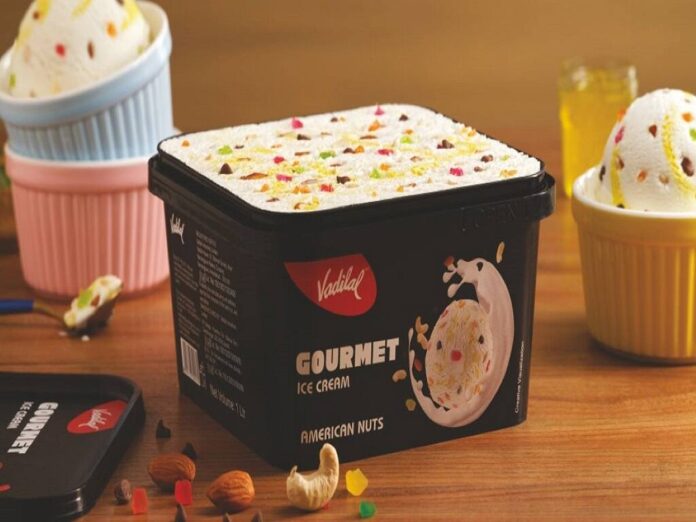
From Selling Fountain Soda To Building A Rs 650-crore Ice Cream Enterprise, Vadilal’s Inspiring Journey
Date:

Share post:
Beginning with the conventional Kothi process of churning milk, ice, and salt with a hand-operated machine, the company now offers clients over 200 various flavours of ice cream created at their state-of-the-art manufacturing facilities.
How Did It All Start
Vadilal Gandhi, an Ahmedabad local, created the namesake company in 1907. At first, he began selling soda and slowly expanded to include ice cream. Ranchod Lal Gandhi, Vadilal Gandhi’s son, inherited this tiny but rapidly expanding firm. Vadilal began focusing more on ice creams under Ranchod Lal Gandhi’s guidance. In 1926, Vadilal founded the first ever ice cream shop. That very same year, a machine for creating ice cream was shipped from Germany for the first time. The company had four locations around the city by the time India gained independence. Vadilal had grown to ten stores in Ahmedabad by the early 1970s, when Ramchandra and Laxman Gandhi, sons of Ranchod Lal Gandhi, joined the firm.

Vadilal’s consumers appear to have a pleasant and distinctive relationship with the company. One of its USPs was that all of their ice creams were 100 percent vegan and touted as also being suitable for consumption even during spiritual prolonged fasting, indicating that the company had its finger on the pulse of its customers.
After establishing its reputation in Gujarat, the corporation began searching for ways to grow into other states, beginning in 1985. By the 1990s, the Gandhi family’s fourth generation had joined the firm. This includes Ramchandra Gandhi’s three sons, Virendra, Rajesh, and Shailesh Gandhi, as well as Laxman Gandhi’s son Devanshu Gandhi. Vadilal Industries Ltd was the company’s name when it was listed on the Bombay Stock Exchange (BSE) in 1990. In the same year, a family split led to two names appearing on the BSE.
A ‘Green’ Icecream Brand

Kalpit Gandhi, the firm’s Chief Financial Officer (CFO), has grown up hearing tales about the company’s success and struggles. Vadilal has grown from a startup that sought to expand beyond Gujarat to a thriving export industry.
Today, Vadilal is the best-selling Indian ice cream chain in the United States, and our brand is available in 45 countries,” he adds. While conducting business responsibly is important to the company, Kalpit says with pride that they are also concerned about environmental issues and are working to safeguard it.
“One of our sites in Pundhra (Gandhinagar district, Gujarat) is the country’s largest completely automated facility, and it’s also been approved by the Export Council of India and the British Retail Consortium, which gives us a lot of confidence in the global market,” Kalpit explains. He also mentions that each of their sites has a nearly 60% green cover, and that all sewage is routed to a water treatment facility being used for the lawn care on the premises.
“It’s a source of pride to work for a company that has so many firsts,” Kalpit says. Vadilal was the very first ice cream company in India to introduce ice cream dollies, cones, and sundaes, as well as the first to set up a completely automated candy production line. In the 1950s, it also created Cassata ice cream and began offering delivery services of ice creams in specially designed thermos boxes.

Making Records
Vadilal made the ‘World’s Largest Ice Cream Sundae’ in November 2001, which earned it a spot in the Limca Book of Records. 4,950 litres of ice cream, 125 kg of dry fruits, 255 kg of fresh fruits, and 390 litres of various sauces were used to make this ice cream sundae. This sundae was assembled in a record-breaking 60 minutes by 180 persons. According to the brand, over 50,00 individuals enjoyed this sundae.
While a 120 ml piece of their famed Cassata ice cream costs around Rs 40, a family pack of Rajbhog flavour ice cream costs Rs 360 for 700 ml. The brand has made sure to serve a wide range of delectable flavours, and they also have a premium ice cream line that starts at Rs 50 for a 140 ml tub of ice cream.
And, despite the fact that Vadilal has been there for almost a century, they have changed much over the years. “We have always put a lot of focus on the marketing part and also keeping a watchful watch on consumer feedback,” Kalpit explains. While we use numerous social media outlets for promotion, we also need to maintain direct contact with our customers.”
